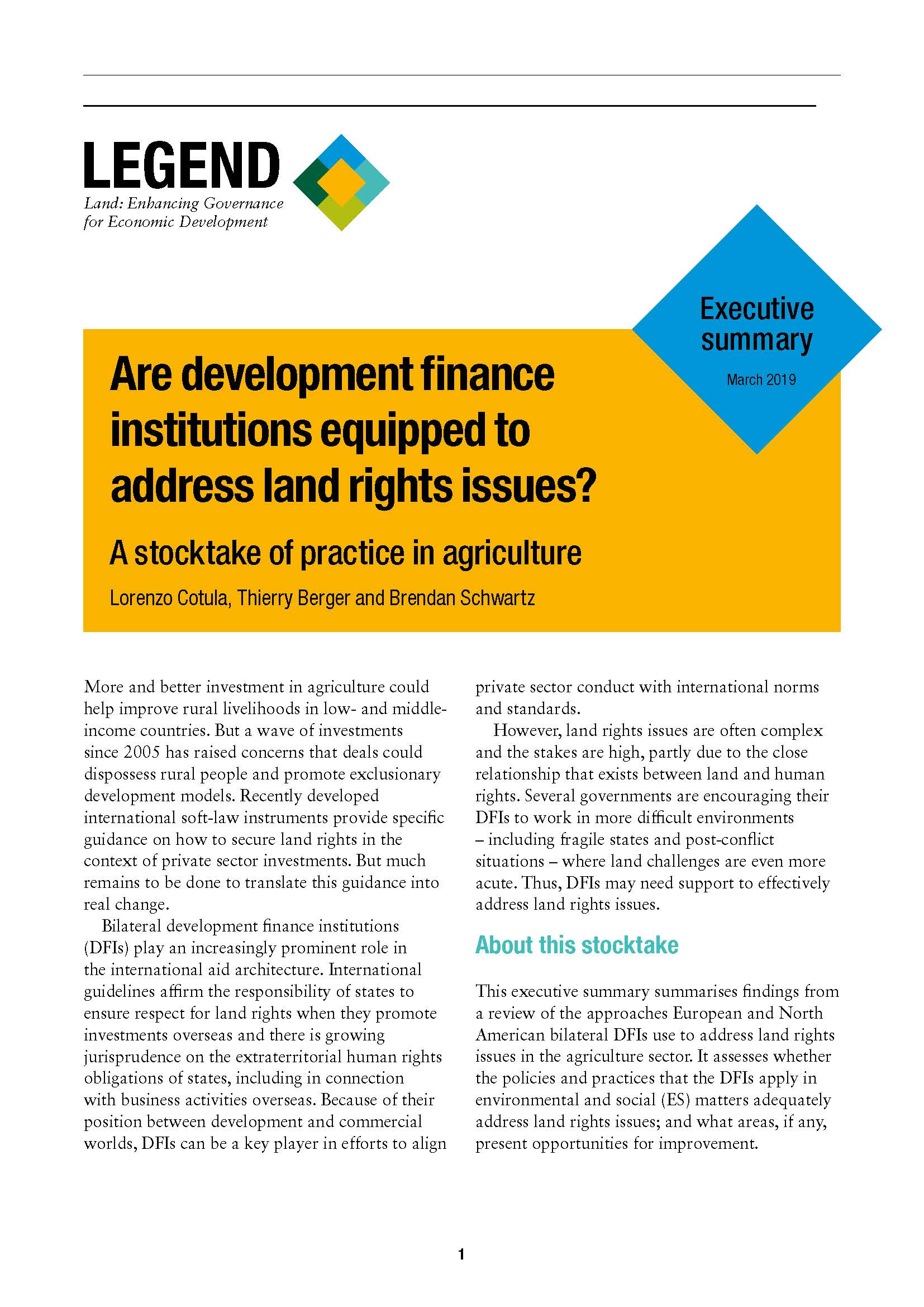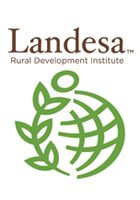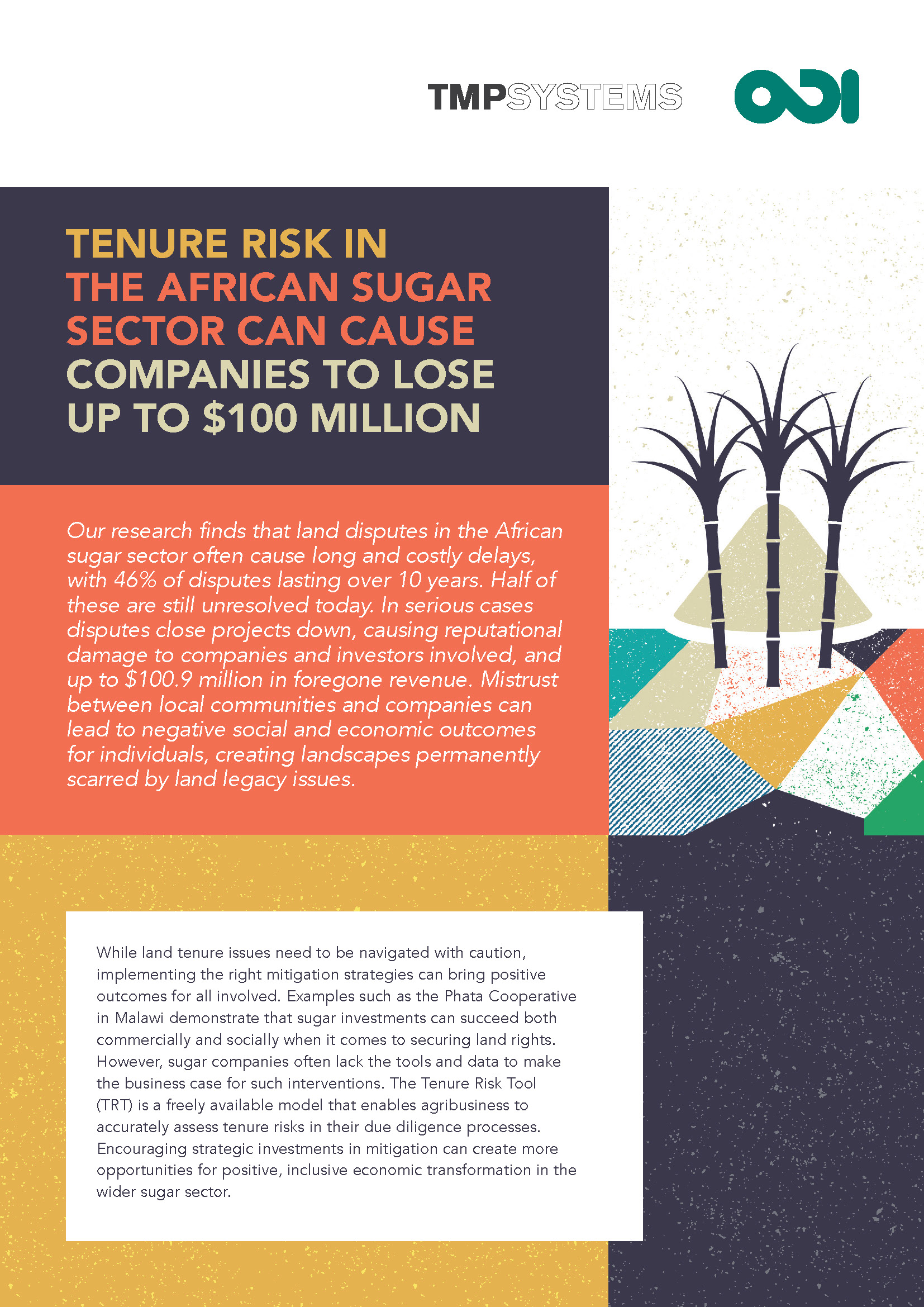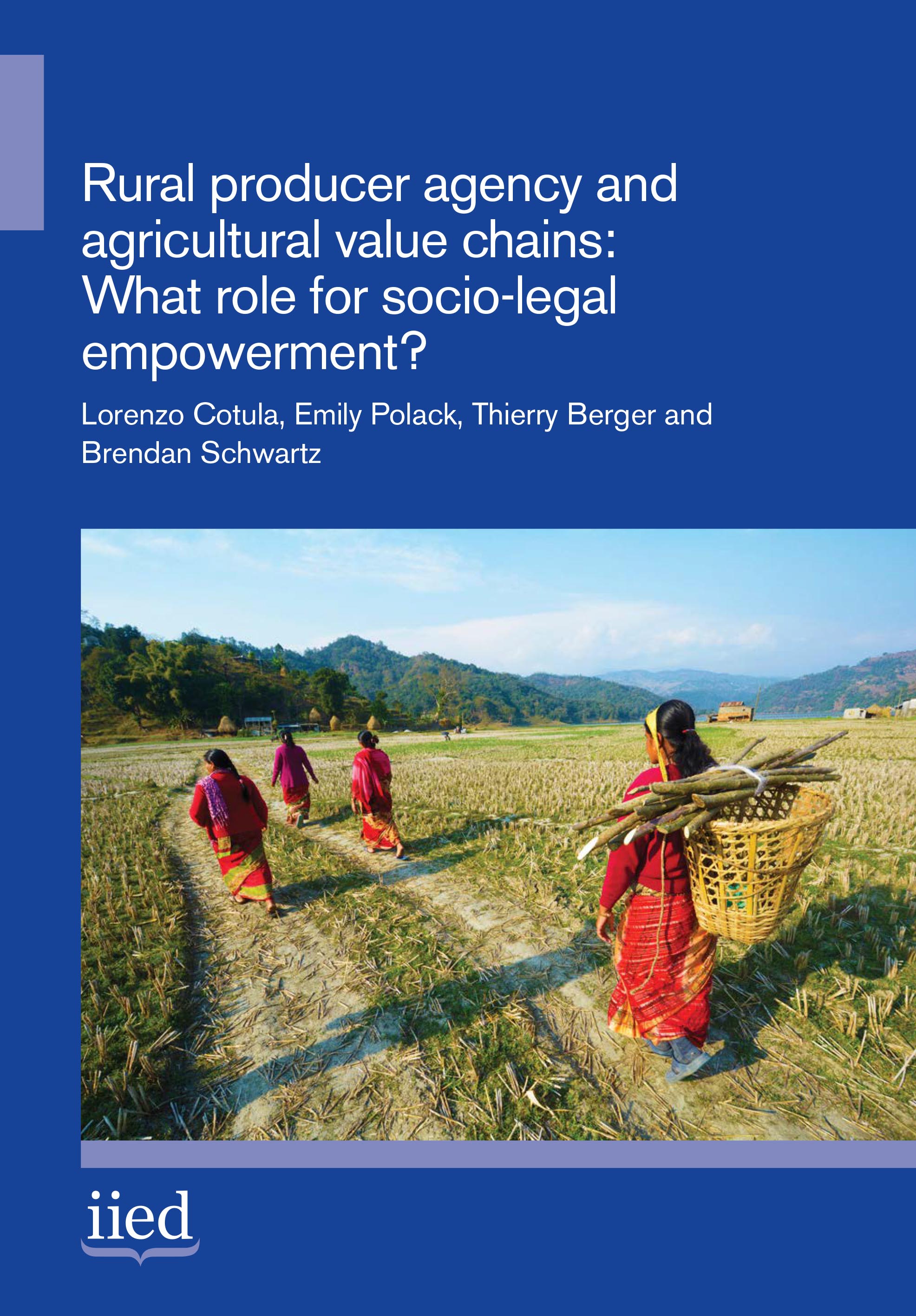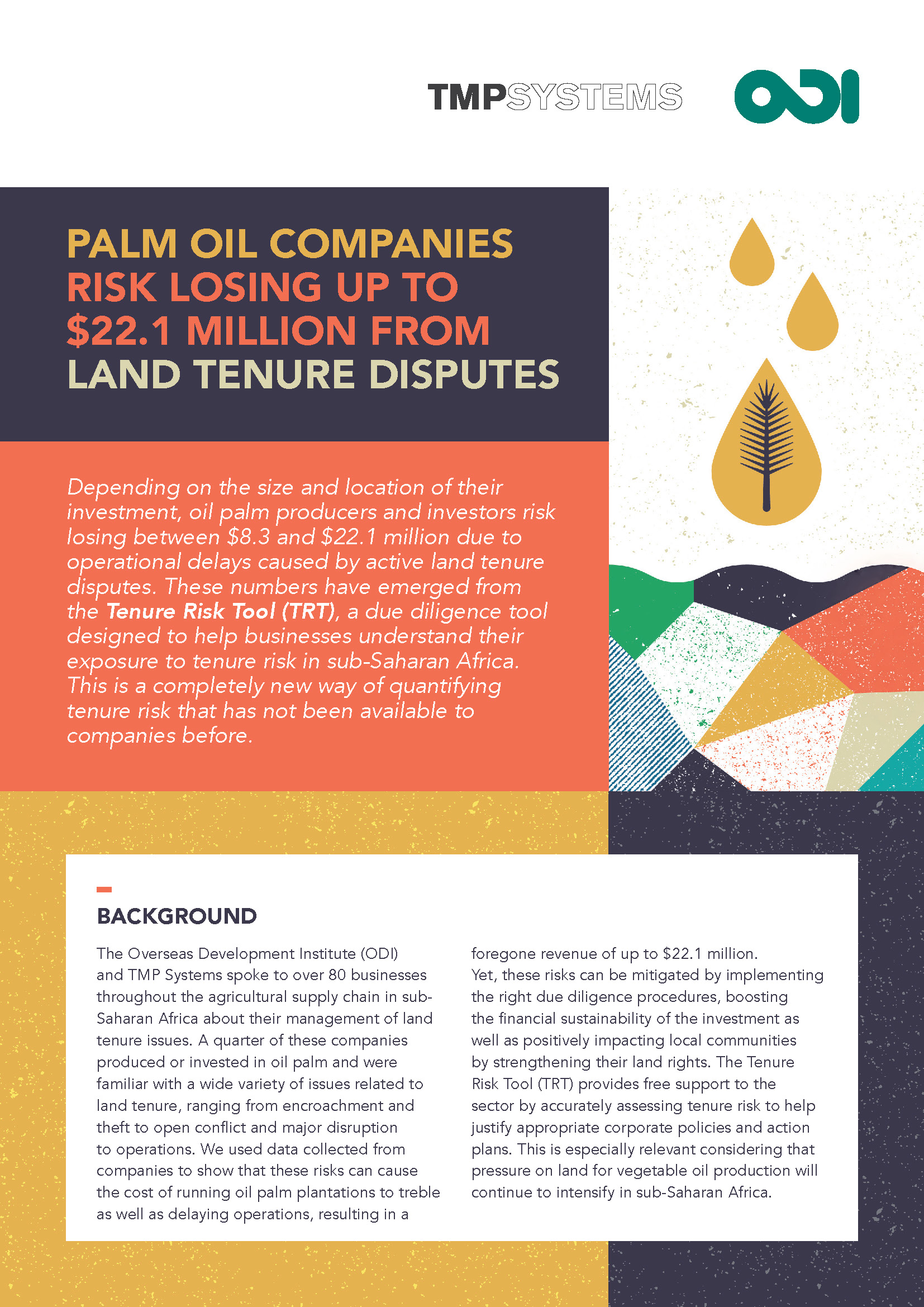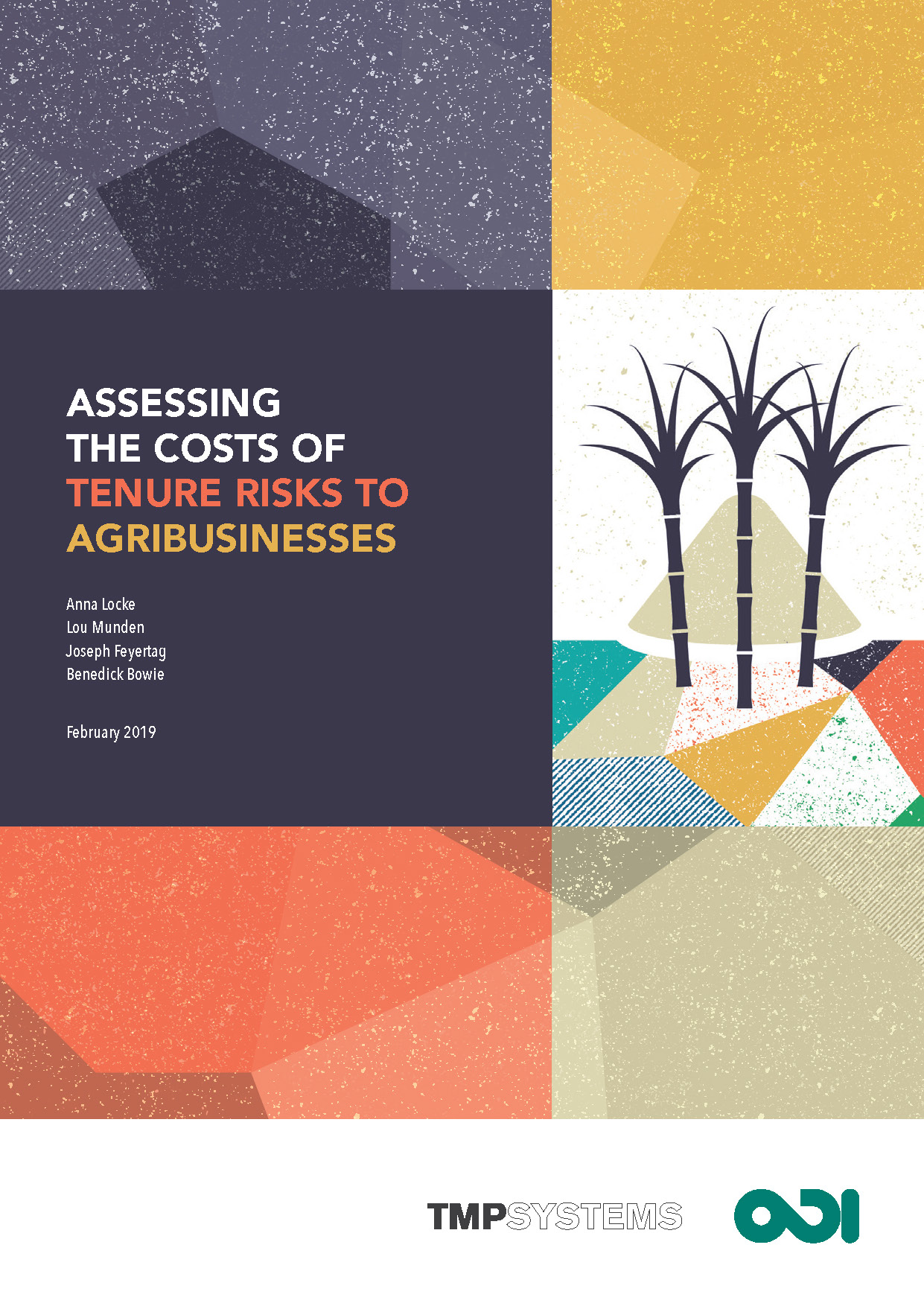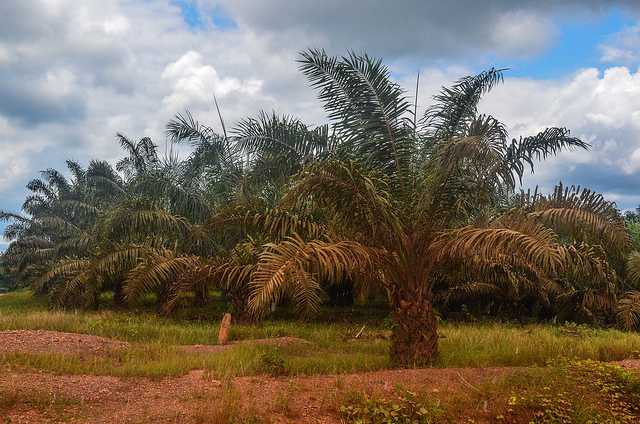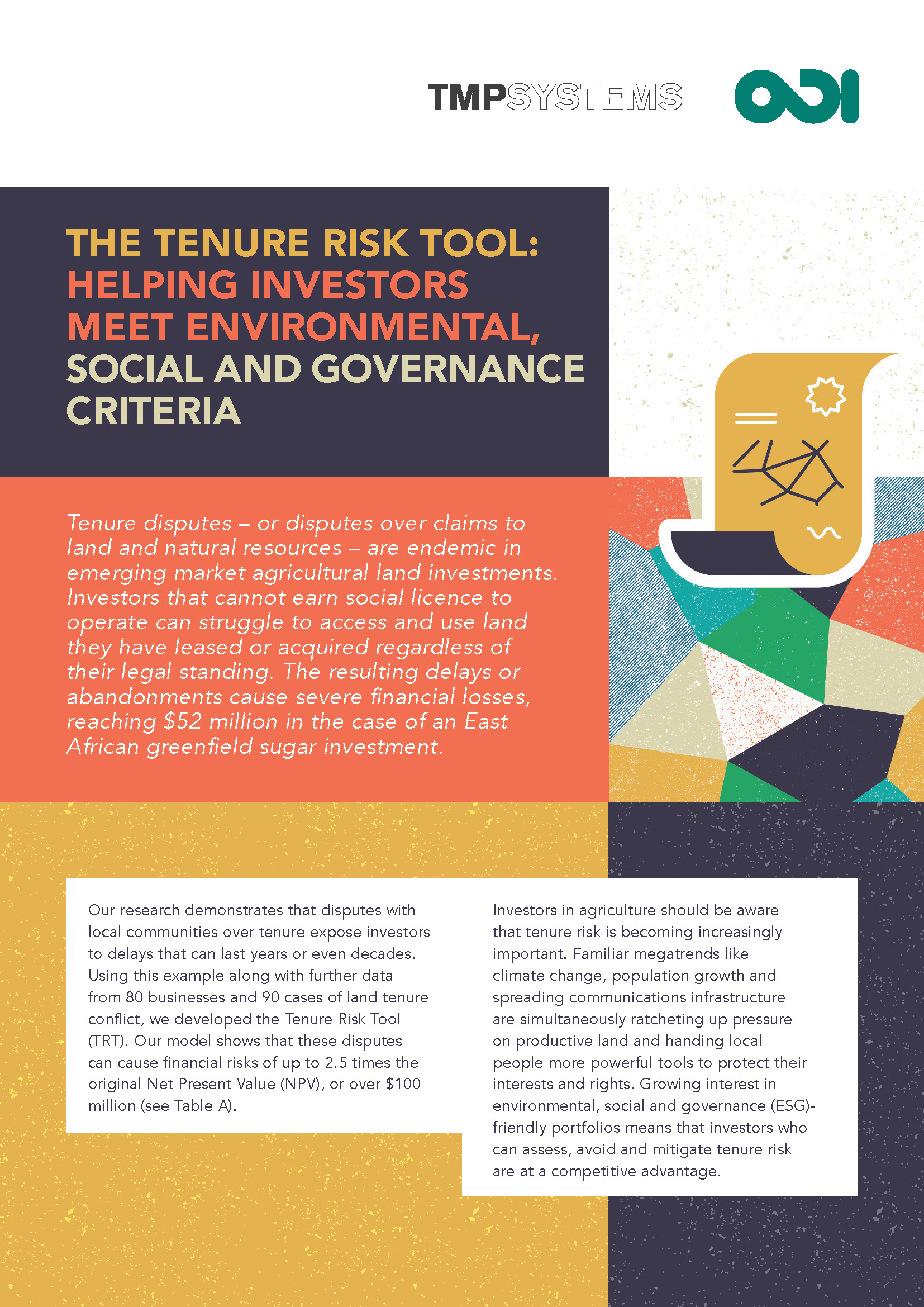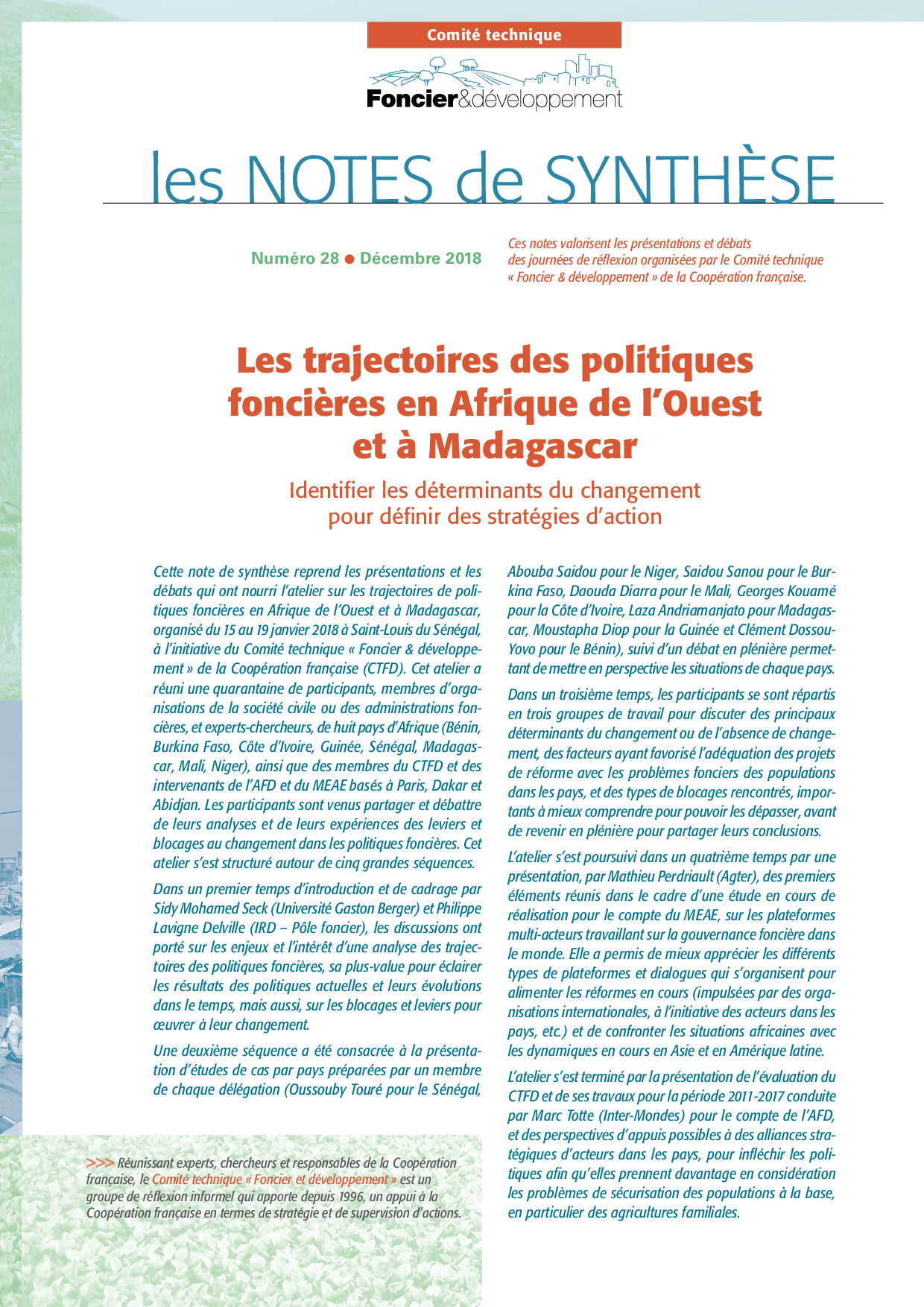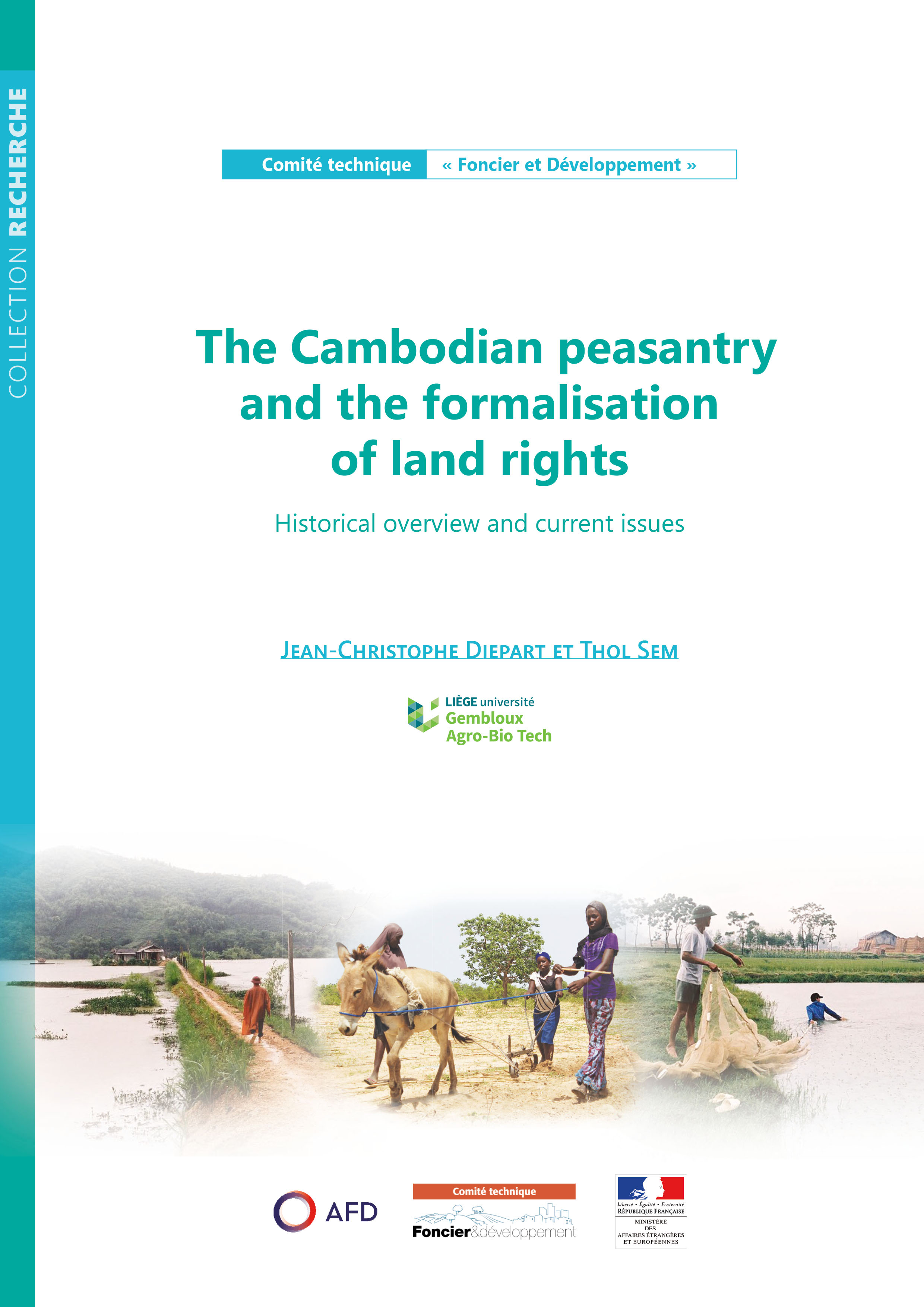Are development finance institutions equipped to address land rights issues? [Executive Summary]
Bilateral development finance institutions (DFIs) play an increasingly prominent role in the international aid architecture. Because of their position between development and commercial worlds, DFIs can be a key player in efforts to align private sector conduct with international norms and standards.

